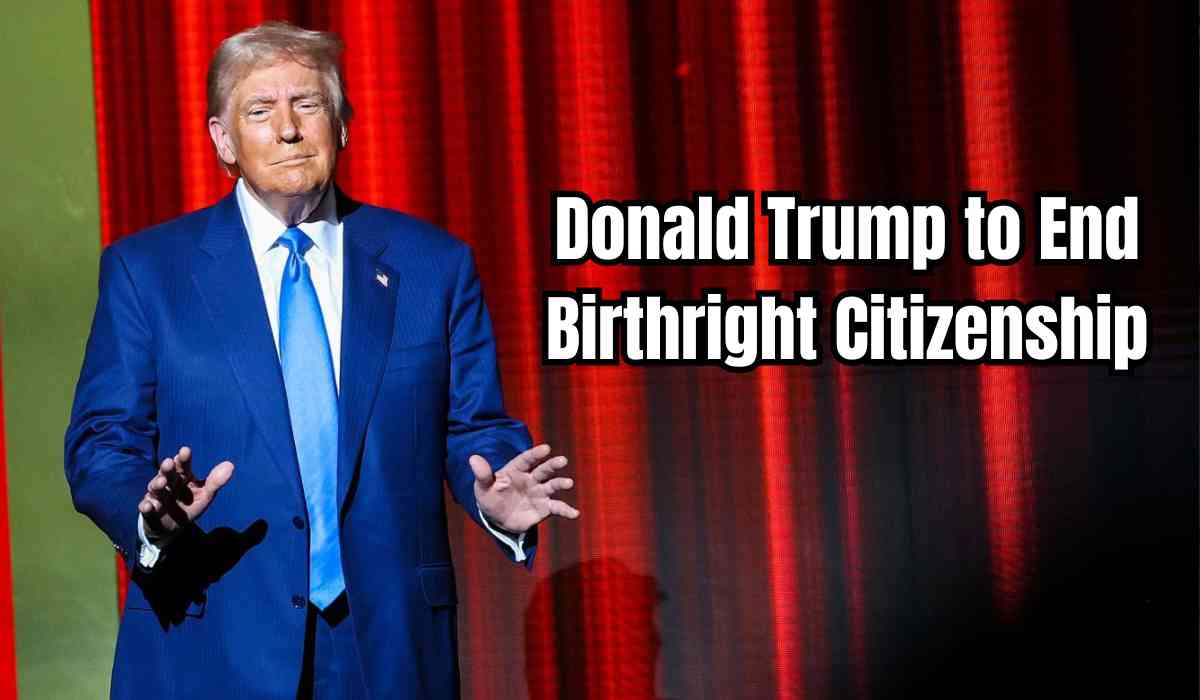President-elect Donald Trump has called birthright citizenship "ridiculous" and expressed a desire to end it after taking office on January 20. This guarantee, which has been part of U.S. law for over 150 years, provides automatic citizenship to any child born on U.S. soil, regardless of the parents' nationality.

Plans to Change the Law
In an interview, Trump stated, "We're going to have to get it changed," adding that the issue might need to go to the people for a decision. Although Trump raised this issue during his first term, no significant action was taken to address it.
Also Read: https://vygrnews.com/international/trumpchoosesharmeetdhillon
A Controversial Issue
The right to birthright citizenship is based on the 14th Amendment of the U.S. Constitution. This amendment ensures that anyone born or naturalised in the U.S. is granted citizenship. However, Trump and his supporters believe the system is being misused, particularly by those who come to the U.S. for "birth tourism," where pregnant women travel to the U.S. specifically to give birth in order to secure U.S. citizenship for their child.

Russell A Stamets, a legal expert, said that while Trump’s stance reflects concerns about misuse, any attempt to remove birthright citizenship would face significant legal challenges due to the 14th Amendment's protections.
The Impact of Ending Birthright Citizenship
Critics, including Eric Ruark from NumbersUSA, argue that granting automatic citizenship through birthright undermines the integrity of the U.S. immigration system. Trump has said that ending the practice could prevent families from being separated, but this would also mean that legal U.S. citizens might face deportation if their parents were not born in the country.
A 2011 report by the American Immigration Council pointed out the broader implications of eliminating birthright citizenship. Without rican parents would struggle to proveit, Ame their children’s citizenship status, as birth certificates are currently used as legal proof.
Impact on Indian-Americans
According to Pew Research, approximately 4.8 million Indian-Americans live in the U.S., with around 1.6 million of them born in the country. These individuals, under current law, are U.S. citizens. If birthright citizenship is abolished, they could be directly affected, highlighting the significant consequences for many immigrant families. Despite Trump's calls for reform, he cannot alter the U.S. Constitution unilaterally. Any attempt to restrict birthright citizenship would be in violation of the 14th Amendment, which guarantees it.
Not everyone takes Trump's statements seriously. Alex Nowrasteh of the Cato Institute, a pro-immigration think tank, pointed out that Trump has been advocating for these changes for nearly a decade but did not push forward with any meaningful action during his previous presidency.
With inputs from agencies
Image Source: Multiple agencies
© Copyright 2024. All Rights Reserved Powered by Vygr Media.

























